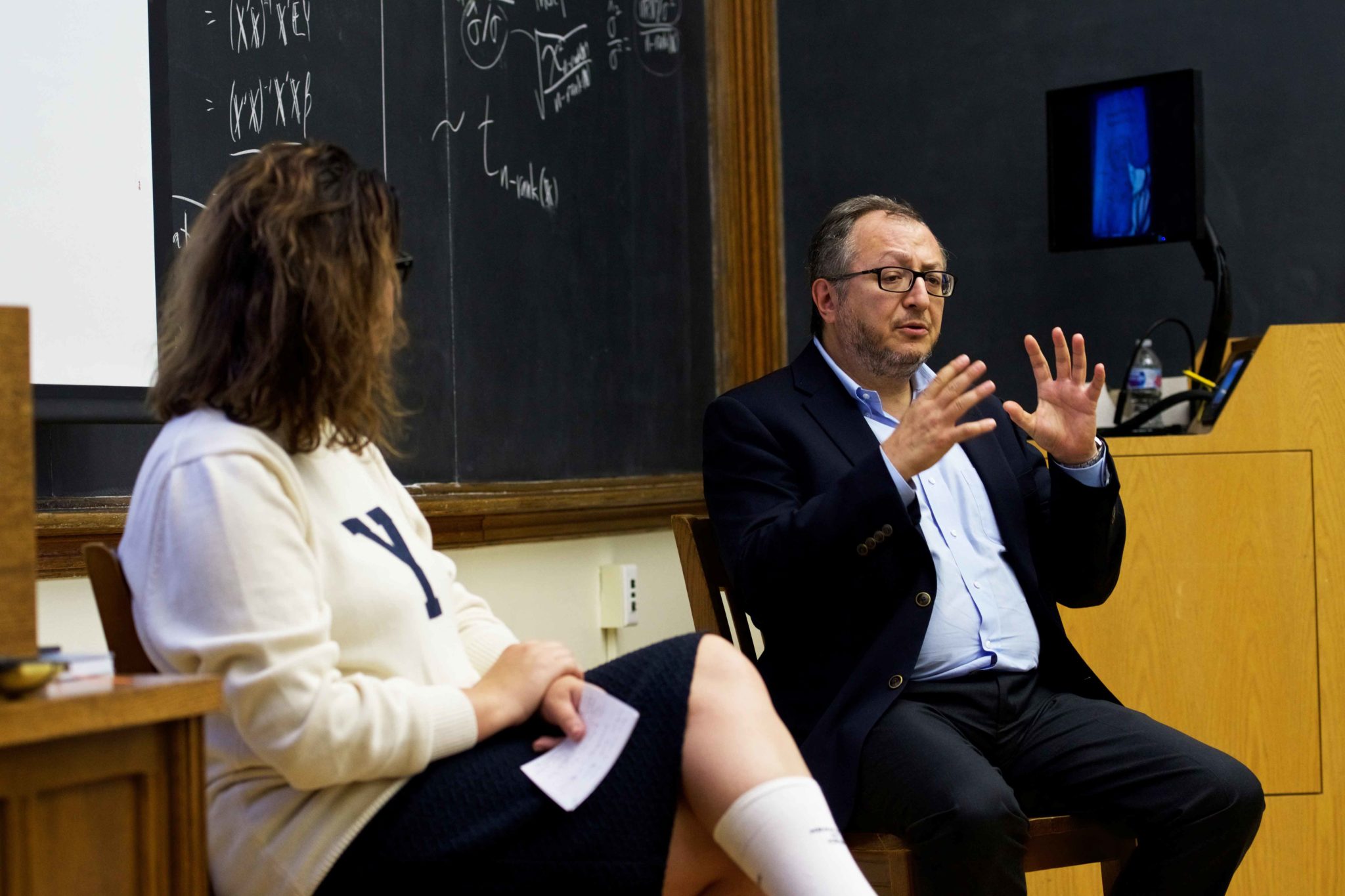
Imagine a world without multinational organizations or regional organizations, Jack Christofides, a United Nations official told a crowd of roughly 25 in William L. Harkness Hall Wednesday evening.
“We had that world; it wasn’t so nice.“ he said.
In a conversation with 2018 Maurice R. Greenberg World Fellow Elpida Rouka, Christofides, the director of the Africa II Division in the Department of Peacekeeping Operations, discussed his experiences with the United Nations.
At the Jackson Institute for Global Affairs’ World Fellow event, Christofides underscored the importance of peacekeepers in the wake of political strife in the world. Peacekeepers, which monitor peace missions on behalf of the United Nations, have received pushback from the international community for high profile instances of human rights violations.
“I’m not suggesting for a second that peacekeeping is the answer; it certainly is not. But there are a number of cases in the world today where the application of a third-party platform such as peacekeeping — which combines a military component, a police component and [is] led by civilians — could be helpful to resolve that country’s problems,” Christofides said.
Christofides cited several successful examples of peacekeeping, including a case in Liberia after its second civil war. Peacekeepers helped establish fair elections and oversaw security after the destruction. Additionally, he said peacekeepers provided temporary refuge and protection after hundreds of thousands of refugees were displaced from South Sudan.
During the event, Christofides mentioned a standoff between an armed group of thugs menacing a group of peacekeepers, who protected the refugees even without weapons themselves.
“They stood in front of a gate,” Christofides said. “On one side was a group of thugs with machetes and all sorts of weapons, threatening to kill them unless they were granted access to the displaced people they wanted to kill. Unarmed, they stood in front of this group and said absolutely not.”
The United Nations established new refugee camps in South Sudan to protect these refugees.
But peacekeepers are not always able to protect every region, Christofides said, citing a case in Libya in which the government declined the peacekeepers’ help. Christofides maintained that he still believes in the peacekeeping model despite the controversy surrounding the United States’ departure from the United Nations Human Rights Council, the UNHRC, a decision President Donald Trump announced in June.
“For me, it’s highly regrettable that this great country has decided to leave the UNHRC,” Christofides said. “I do think that it has become politicized, but that didn’t occur 5 minutes ago. It’s always been politicized.”
Christofides argued that the entire multilateral system, including the North American Trade Organization and European Union, is under threat. He stressed that the United Nations Security Council, for example, provides a platform for diplomats from different countries to deliberate and find solutions. Recently, countries have used the group for their own political agenda, citing the increasing number of vetoes used by countries to protect their own interests.
“There was a moment where the United Nations meant something to the world,” Christofides said. “We were seen by people, by the great powers, as bringing some kind of solution. Not to every problem, but to many problems. I’m not sure if I believe it in quite the same way today. I believe that the great powers have somewhat taken some distance from the United Nations and have not brought key problems to the United Nations to help resolve.”
Yet, Christofides contended that the United Nations would continue to survive, as it had during the Cold War when tensions and politicization were at their peak.
The United Nations’ strength is its balance of power and principle, he said.
“The world needs some mechanism that codifies what behavior should be like across a range of human activity,” Christofides noted. “And what the United Nations adds is the enforcement mechanism.”
Rouka, the fellow who moderated the event, said she too understands the importance of peacekeeping. Rouka’s first job was in the Iraq United Nations office, where she survived a bombing on her first mission, she said.
Noting that she has spent the last decade helping with peace processes in the Middle East, Rouka said she “always tr[ies] to contextualize.”
“I ask why is it that countries did or did not not take action in Syria, based on their perception of what they did wrong in Iraq,” Rouka said.
Yanique Joseph ’00, who attended the event, said she came to hear Christofides because of her own interest in multilateral organizations and their purpose.
“The United Nations is not perfect, but it is necessary to prevent war and all kinds of conflict,” Joseph said.
The United Nations established its peacekeeping branch in 1948.
Alayna Lee | alayna.lee@yale.edu .







